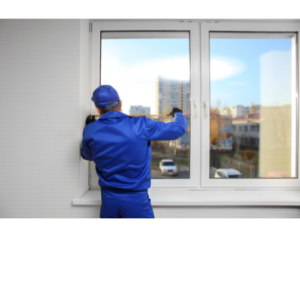Minimum housing standards explained
Attention landlords! New minimum housing standards are required!
Starting September 1st, 2023, all new rental agreements need to meet these improved standards. By September 1st, 2024, all existing tenancies will also need to comply. This means you've got some time to make sure your rental property meets the grade.
These standards ensure your tenants have a safe and healthy place to live. It's a win-win for everyone!
The exact minimum housing standards are listed in a regulation document [RTRA Regulation], but generally they focus on two main areas: keeping tenants safe and secure, and making sure the rental property functions properly.
Your rental property should be a safe and secure place to live. Here's what that means:
- Keeps the weather out: The roof and walls shouldn't leak, and the building should be structurally sound.
- Everything works properly: Appliances and plumbing should be in good shape and not a safety hazard.
- Keeps you safe from outsiders: Doors and windows that can be reached from the ground need to have working locks.
- Free of pests and moisture: The property shouldn't have mold, dampness, or vermin (unless it's your fault, like not using an exhaust fan).
- Privacy in your own space: Bedrooms and bathrooms should have blinds, curtains, or something similar to give you privacy. This doesn't apply if there are already things outside blocking the view, like trees or fences.
Your rental property should have the basic things you need to live comfortably. Here's what that means:
- Working plumbing and water: There should be enough sinks, drains, and toilets for everyone living there, with hot and cold running water that's safe to drink.
- Private bathroom: Bathrooms and toilets should give you privacy. Toilets should also flush properly and have a working waste disposal system.
- Cooking space (if there's a kitchen): If there's a kitchen, it should have a working stovetop for cooking.
- Laundry hookups (if there's a laundry): If there's a laundry room, it should have the necessary plumbing to connect a washing machine (washer and dryer are usually your responsibility).
You can't raise rent just because you make improvements to meet the minimum standards. Tenants shouldn't have to pay more to live in a safe and healthy place.
If you try to raise rent for these improvements, tenants can challenge it in tribunal. It's best to be upfront about costs and avoid any potential disputes.
Landlords, remember: meeting minimum housing standards is your responsibility. If your rental property isn't up to standard here's what tenants can do:
- Move out: If the problems aren't fixed after they tell you, they can give notice and end the lease.
- Take you to tribunal: They can ask a tribunal to order you to make repairs.
- Fix it themselves and deduct the cost from rent: They can pay for repairs up to 4 weeks' rent if you don't respond in a reasonable time.
The bottom line: It's important to make sure your rental property meets the minimum standards. This protects your tenants and avoids potential headaches down the road.
By now, property managers should be familiar with the minimum housing standards and which rentals need work to comply. It's important to talk to landlords about getting any repairs done by qualified professionals so their properties meet the deadlines. This will help avoid any issues with tenants in the future.



